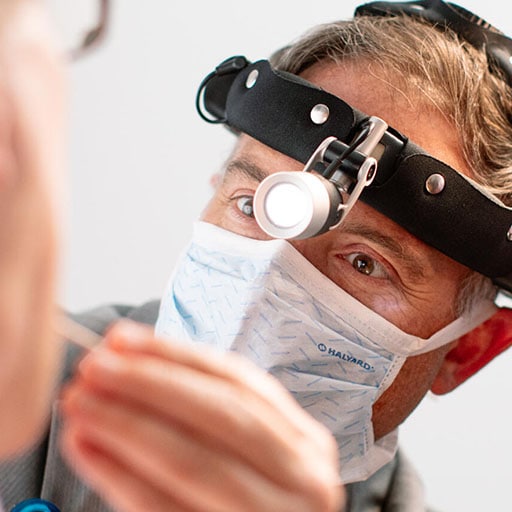Signs That It's Time to See a Voice Specialist
Signs That It's Time to See a Voice Specialist
Blog Article
Discovering the Area of Otolaryngology: What to Anticipate When You Speak With an ENT
Otolaryngology, commonly referred to as ENT, incorporates the diagnosis and therapy of throat, nose, and ear conditions. ENT. For those experiencing relevant issues, consulting an ENT professional can supply clearness and relief. Understanding what to anticipate during such appointments is essential for effective communication and treatment. This introduction will detail crucial aspects of the ENT experience, consisting of common reasons for visits and the procedures involved in medical diagnosis and therapy
Understanding Otolaryngology: A Summary
Otolaryngology, frequently referred to as ENT (Throat, ear, and nose) medicine, is a customized branch of medicine that concentrates on the diagnosis and treatment of problems impacting these essential areas of the body. This field incorporates a large range of problems, including those relevant to hearing, balance, breathing function, and speech. Otolaryngologists are educated to handle both medical and medical treatments, utilizing advanced strategies and modern technologies. Their experience prolongs beyond standard ailments, resolving issues such as allergies, sinus infections, and hearing loss. In addition, they play an essential role in the administration of head and neck cancers, offering comprehensive care tailored to specific patient demands. Generally, otolaryngology remains vital for preserving health and lifestyle in affected individuals.
Common Reasons to See an ENT Specialist
Lots of people seek the experience of an ENT specialist for a range of factors, showing the diverse nature of conditions that affect the throat, nose, and ear. Common concerns consist of persistent sinusitis, which commonly leads to consistent nasal blockage and facial pain. Allergic reactions and their associated signs and symptoms, such as sneezing and itching, additionally trigger sees to these specialists. Hearing loss, whether gradual or unexpected, is an additional significant factor for appointment. In addition, individuals may look for assessment for throat conditions, consisting of persistent hoarseness or ingesting problems. Rest apnea, defined by interrupted breathing throughout rest, is frequently addressed by ENT professionals too. Each of these problems highlights the value of specialized treatment in taking care of intricate ENT-related wellness issues.
Preparing for Your ENT Visit
When preparing for an ENT visit, it is necessary to gather pertinent details and take into consideration any kind of details concerns. Patients ought to put together a detailed clinical history, consisting of previous ear, nose, or throat problems, surgical treatments, and present medicines. Documenting signs and symptoms-- such as period, regularity, and extent-- can give beneficial understandings for the ENT expert. Additionally, people should prepare a list of inquiries they want to ask, making sure that all worries are resolved throughout the check out. Bringing along any type of relevant medical documents or test outcomes can additionally help the ENT in recognizing the client's problem. Finally, individuals should confirm their visit details, consisting of time, place, and day, to lessen any final confusion. Appropriate preparation can improve the effectiveness of the consultation and result in better end results.

What to Anticipate Throughout the Examination
As the consultation starts, the patient can expect to take part in a detailed discussion with the ENT specialist about their signs and medical background. The specialist will certainly ask about the duration, frequency, and intensity of symptoms such as hearing loss, nasal congestion, or sore throat. In addition, the patient's previous medical conditions, medicines, and any pertinent family members background will be assessed, assisting the professional in forming a complete understanding of the client's health and wellness. The ENT might likewise inquire about way of living aspects, such as exposure to toxic irritants or irritants. This open dialogue develops a foundation for the assessment, guaranteeing that the individual's concerns are addressed and establishing the stage for any type of required examinations or suggestions for treatment.
Diagnostic Examinations and Treatments in Otolaryngology
A series of diagnostic tests and treatments are essential in otolaryngology to accurately examine and identify conditions impacting the ear, nose, and throat. Usual tests include audiometry, which determines hearing function, and tympanometry, evaluating center ear pressure. Nasal endoscopy allows visualization of the nasal flows and sinuses, while laryngoscopy checks out the throat and singing cords. Imaging strategies, such as CT scans and MRIs, supply in-depth views of head and neck structures. Allergic reaction ENT Clinic screening might also be conducted to identify triggers for sinus or respiratory problems. These analysis tools enable ENT specialists to develop a detailed understanding of clients' conditions, making certain customized and reliable administration plans. Proper diagnosis is important for effective treatment results in otolaryngology.
Therapy Choices Supplied by ENT Specialists
ENT experts provide a range of therapy alternatives tailored to attend to specific problems impacting the ear, throat, and nose. These treatments range from traditional techniques, such as medication and way of life adjustments, to more intrusive procedures. As an example, allergies may be managed with antihistamines or immunotherapy, while persistent sinusitis may call for nasal corticosteroids or sinus surgical procedure. For hearing loss, ENT specialists often suggest listening device or medical interventions like cochlear implants. In situations of throat disorders, alternatives can include speech treatment or operations to eliminate blockages. In addition, they might offer advice for handling sleep apnea, including using CPAP devices or surgical treatments. Overall, the objective is to boost patients' quality of life via personalized care and effective therapy techniques.
When to Look For Follow-Up Treatment With an ENT
When to look for follow-up treatment with an ENT specialist is essential for handling continuous symptoms or difficulties connected to ear, nose, and throat conditions, recognizing. People ought to take into consideration scheduling a follow-up appointment if signs and symptoms persist in spite of preliminary treatment, such as persistent ear pain, nasal congestion, or throat discomfort. Modifications in hearing, equilibrium issues, or uncommon nasal discharge may also necessitate additional evaluation. In addition, if an individual experiences adverse effects from suggested medicines or has gone through a procedure, follow-up treatment is very important to check recuperation and attend to any problems. Prompt assessments can ensure efficient management of problems, stop potential problems, and give tranquility of mind pertaining to one's health. Looking for follow-up care promotes aggressive wellness administration in otolaryngology
Frequently Asked Inquiries
What Certifications Should I Look for in an ENT Expert?
When seeking an ENT professional, one need to try to find board accreditation, relevant experience, and strong person evaluations. Furthermore, effective interaction skills and a thoughtful method can greatly enhance the general treatment experience.
Just how Do I Choose the Right ENT for My Needs?
Picking the best ENT specialist entails evaluating their certifications, experience, and client evaluations. It is vital to contemplate their interaction design and strategy to therapy, ensuring they line up with the person's specific health and wellness requirements and preferences.
Exist Any Kind Of Risks Related To ENT Procedures?
The risks related to ENT treatments may include infection, bleeding, anesthesia issues, and potential damage to surrounding frameworks. Individuals ought to go over these risks with their doctor to comprehend private worries and warranty educated choices.
How Can I Manage Anxiousness Before My ENT Visit?
To manage anxiousness before an appointment, people can practice deep breathing workouts, visualize positive end results, prepare questions ahead of time, and look for support from pals or family, cultivating a feeling of confidence and calmness.

What Should I Do if I Experience Negative Effects From Therapy?
The person should quickly report them to their healthcare company if side effects from treatment take place. Changes to treatment or extra treatments may be required to ensure safety and performance in handling their condition. As the consultation begins, the person can expect to involve in a comprehensive conversation with the ENT expert concerning their signs and medical history. These diagnostic tools allow ENT professionals to develop an extensive understanding of clients' problems, guaranteeing tailored and effective administration plans. ENT experts supply a variety of therapy choices tailored to resolve specific problems impacting the nose, ear, and throat. When seeking an ENT expert, one must look for board certification, relevant experience, and solid individual reviews. Selecting the right ENT specialist includes examining their qualifications, experience, and client evaluations
Report this page